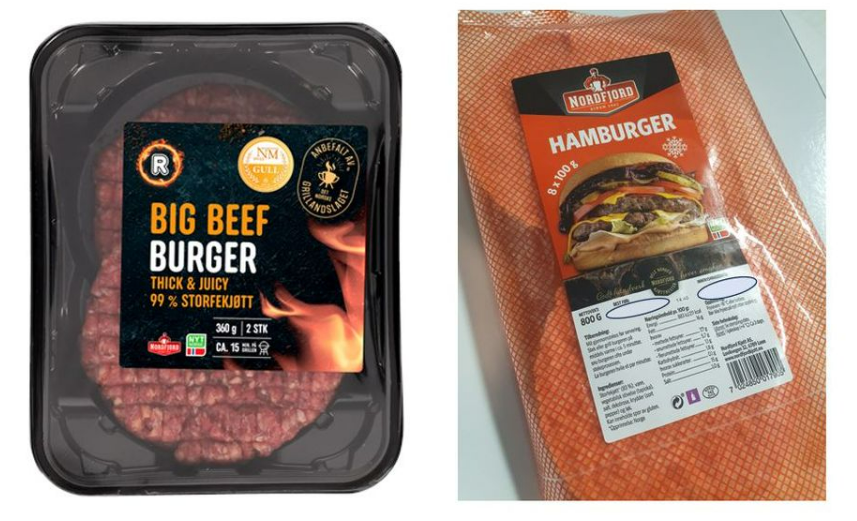NewsDesk @bactiman63
The Norway Institute of Public Health reported about a national outbreak of the gastrointestinal bacterium, Enterohemorrhagic E. coli (EHEC). Infection has now been detected in 15 people. Hamburger is the suspected source of infection in the ongoing outbreak.

At the end of July, the Norwegian Food Safety Authority was notified by the Institute of Public Health about a national outbreak of the gastrointestinal bacterium EHEC. Infection was then detected in a small number of people, living in different parts of the country. An outbreak investigation was initiated in collaboration between the Norwegian Food Safety Authority, the Norwegian Institute of Public Health, the Veterinary Institute and municipal chief medical officers.
So far, 15 patients aged from under 5 to 55 have been reported, living all over the country–Trøndelag (8), Viken (4), Vestfold and Telemark (2) and Nordland (1). Five of them have developed the serious complication Hemolytic Uremic Syndrome (HUS).
They became ill in July and August 2023 and all were infected in Norway.
Analyses show that it is the bacterium EHEC O26:H11 with the same genotype, which has been detected in all those infected.
Nordfjord Kjøtt is withdrawing frozen Hamburger Classic, 800g, with a best before date of 24.03.24 and 25.03.24, and Big Beef Burger Thick and Juicy, 360g, with a best before date of 16.07.23. The products are the suspected source of an ongoing outbreak of E. coli (EHEC) infection.
“It is important to thoroughly cook hamburgers, minced meat, meat cakes and other dough products to prevent EHEC and other bacteria that can cause illness from food, says Silje Bruland Lavoll.
“The bacteria withstand freezing well, take care of good kitchen hygiene both when handling fresh and frozen meat products and wash your hands well after handling”, she adds.
Subscribe to Outbreak News TV on YouTube
Preventive measures
All raw meat contains bacteria, some of which can make you sick. The Norwegian Food Safety Authority recommends that hamburgers should be thoroughly cooked to obtain a safe product. Well done means a core temperature of at least 70 degrees.
Particularly vulnerable groups such as young children, pregnant women and others with reduced immune systems should not eat medium cooked hamburgers.
– Good kitchen hygiene and good hand hygiene can prevent the spread of disease-causing bacteria between foods and between people. If you are ill with diarrhea, you should also avoid cooking for others. A general and good piece of advice is to heat treat food. Sufficient boiling or deep-frying kills the bacteria, says Catherine Signe Svindland, senior adviser in the biological food safety section of the Norwegian Food Safety Authority.
When grinding meat, the bacteria on the surface of the meat pieces are evenly distributed throughout the product. The bacteria get easy access to the nutrients in the meat and good growth conditions. If minced meat is not cooked sufficiently, the bacteria in the middle will be able to survive.
The bacteria withstand freezing well, take care of good kitchen hygiene when handling frozen meat products and wash your hands well after handling.
General advice on good kitchen hygiene:
- All stuffed foods (minced meat, hamburgers, meatballs, etc.) should be well done or cooked through.
- Other meat products should be well cooked on the surface.
- Wash your hands well if you have touched meat and meat products.
- Avoid unpasteurized milk and products made from unpasteurized milk.
- Vegetables to be eaten raw should be rinsed well and dried.
- Store food at refrigeration temperature (+4°C).
- Wash hands after using the toilet, after contact with animals and before cooking and eating
- Wash knives, cutting blades and kitchen equipment that have been contaminated by raw materials before using the equipment for other food.
Related:
Legionnaires’ disease in Poland: A WHO report
France: Botulism outbreak linked to Bordeaux restaurant
Romania: Human anthrax cases reported in Mures County
Whooping cough epidemic in Denmark
Measles in Kyrgyzstan update: IFRC


One thought on “Norway: E. coli outbreak linked to hamburgers, 15 cases reported”